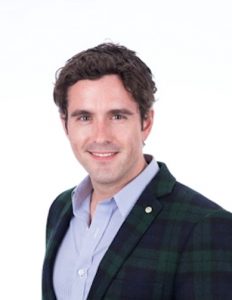DLSPH Researcher to Helm $2.5 Million Training and Mentorship Hub in 2SLGBTQ+ Health
March 31/2022
By Elaine Smith
An interdisciplinary research team has received a $2.5 million grant from the Canadian Institute of Health Research (CIHR) to develop the 2SLGBTQ+ Health Hub: an intersectional training and mentorship platform. This innovative hub will tackle a major training and capacity gap in intersectional and community-informed 2SLGBTQ+ health and community interventions, drawing on the expertise of a network of over 50 scholars, health professionals, and community leaders from across Canada.
In 2019, the Standing Committee on Health (HESA) Report on the health of 2SLGBTQ+ communities in Canada found that there is a need to improve health provider training at all levels to include sexual and gender diversity. The grant to establish the 2SLGBTQ+ Health Hub will ensure that professionals across community, research, and healthcare sectors receive training and mentorship, involving both virtual classroom and community placements. The Hub will offer both an annual fellowship program for trainees (fellows) that features courses and experiential education and an open library of online learning resources available to professionals across sectors.
“This innovative and sustainable Hub will be essential in building human capacity across sectors to train providers, researchers, and community stakeholders in 2SLGBTQ+ health needs in Canada. Our grant brings together national leaders in health interventions designed to meet the needs of diverse 2SLGBTQ+ communities, including Indigenous, Black and People of Colour queer communities throughout their lifespans,” says Daniel Grace, the nominated principal investigator (NPI) of the grant and a DLSPH associate professor. Grace holds a Canada Research Chair in Sexual and Gender Minority Health, as well as the 2SLGBTQ+ health lead position at Dalla Lana. “Thanks to our incredible national team and this funding for fellowships, our program will go well beyond any existing 2SLGBTQ+ capacity building and training program that currently exist in this field in Canada.”

Prof. Daniel Grace
Initially, the team will work with community partners and a cohort of fellows to focus on developing and piloting the training program and resource materials. For example, the team will incorporate training related to experiences of intersectional stigma and racism in health systems in collaboration with Indigenous, Black and other organizations that focus on communities of colour and queer communities.
The research team has also received additional funding from the Strategy for Patient-Oriented Research (SPOR) to help ensure meaningful and sustained engagements of 2SLGBTQ+ patients and community members.
“Our collective work is committed to understanding and addressing social and structural inequities that negatively impact queer communities across Canada. Our training and mentorship in this field must be intersectional, intersectoral, interdisciplinary, and community-based,” says Grace.
After piloting the program, the team plans to annually recruit 30 fellows from various sectors across Canada for training in intersectional 2SLGBTQ+ health.
“The 2SLGBTQ+ Health Hub supports my ongoing mentoring and capacity-building work with programs and organizations that support the education, health, and well-being of Black 2SLGBRQ+ youth and adults” says Lance McCready, Associate Professor, Ontario Institute for Studies in Education at the University of Toronto, and a co-PI on the grant.
Fellows will become proficient in areas pertaining to: 2SLGBTQ+ health and health care experiences; health inequitiesamong Indigenous, Black and other racialized 2SLGBTQ+ people; program evaluation; stigma and wellbeing; theories and praxis spanning social and health science disciplines and Indigenous Ways of Knowing; conducting intersectional research and evaluation with and for 2SLGBTQ+ communities; implementation science; and community-based interventions. Each fellow will also receive individual mentorship from leaders in 2SLGBTQ+ health.
“What to me is exciting about this training platform is that it will connect learners to mentors with real-world experience in 2SLGBTQ+ health issues, providing practical on-the-ground opportunities for learning,” said Mark Gilbert, an Applied Public Health Chair at the University of British Columbia, a co-PI on the grant.
Thanks to the Hub’s unique, community-based approach to education, trainees will benefit from the lived experiences of diverse communities and placements there through partnerships with 2SLGBTQ+ community organizations throughout Canada. Community placements will be a key feature of their training.
“The community’s participation and leadership with the Hub will not only strengthen the education, training, and mentorship offered, but will also uplift the capacities of community-based organizations to improve the health and wellbeing of 2SLGBTQ+ communities across Canada and beyond,” said Michael Kwag, acting executive director of the Community-Based Research Centre in Toronto, a Hub community partner.
Grace, McCready and Gilbert will bring the Hub to life in collaboration with the other principal investigators for this grant: Professor Jacqueline Gahagan, associate vice-president, research at Mount Saint Vincent University; Professor Hannah Kia at the University of British Columbia; Professor Nathan Lachowsky at the University of Victoria.
Professor Ciann Wilson of Wilfrid Laurier University is a co-investigator on the grant and will bring expertise in equity, diversity, inclusion, accessibility, and anti-racism to this work. “In order to do EDIA well, we must ingrain anti-racist and anti-oppressive practice and frameworks in the work of conceptualizing the hub from recruitment and retention practices to training and curriculum development,” said Wilson.
Added Gahagan, “Being 2SLGBTQ+ is not the problem; rather, health policies and health systems that do not consider our communities are the problem by contributing to health disparities. This funding will allow our team to look at what contributes to positive health outcomes across the lifecourse for 2SLGBTQ+ populations in Canada.”